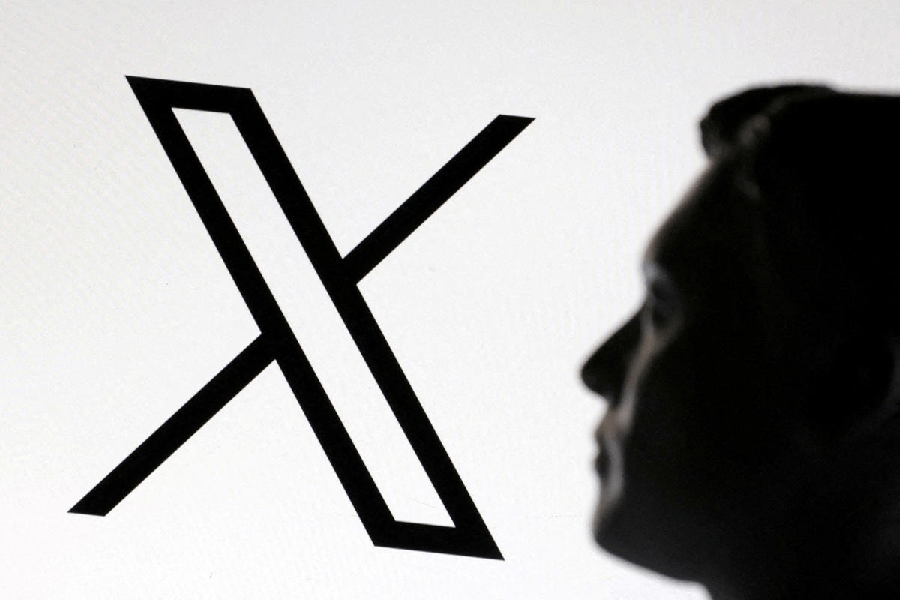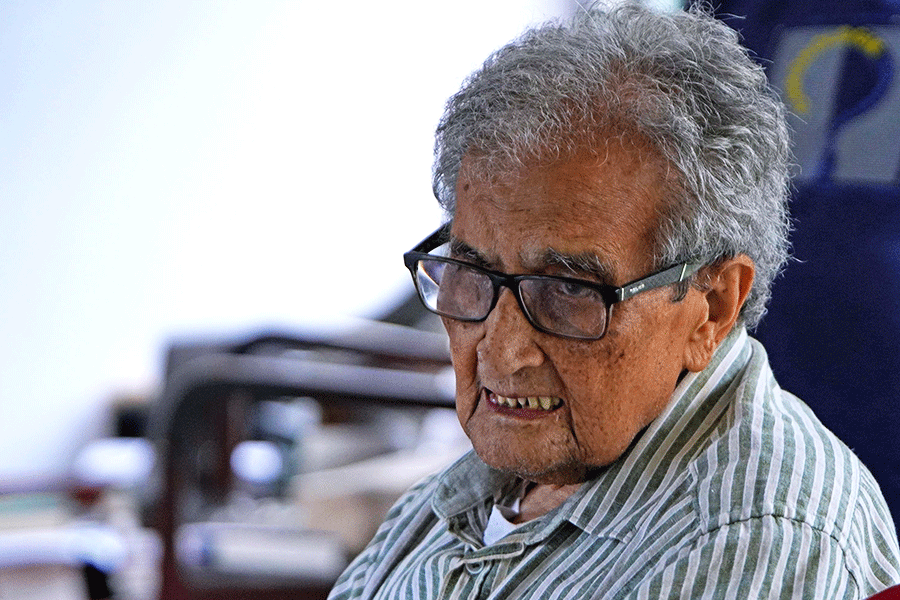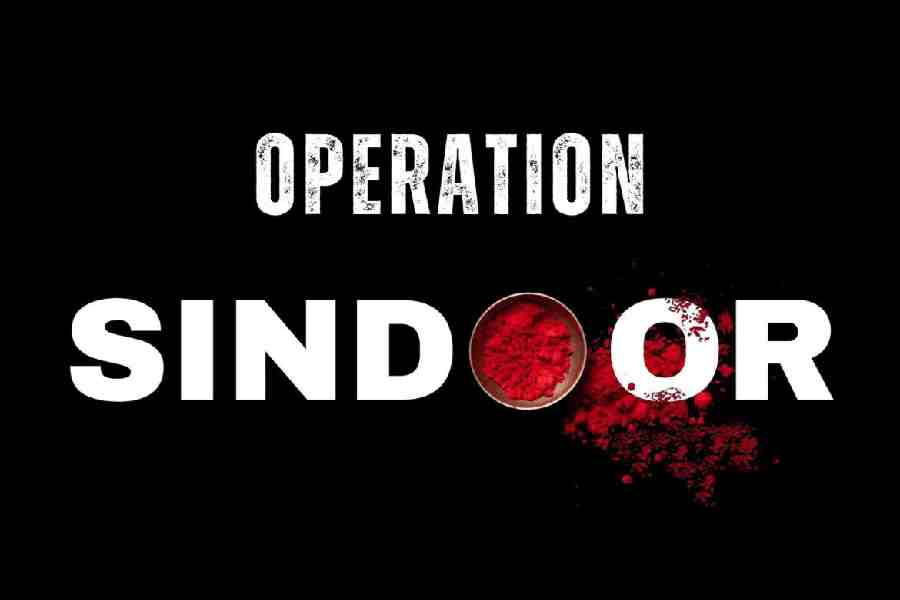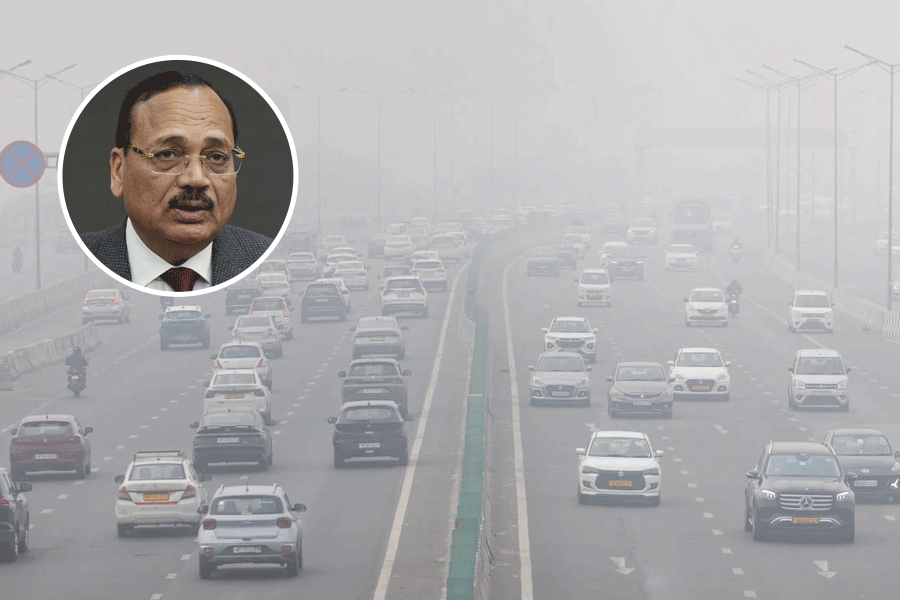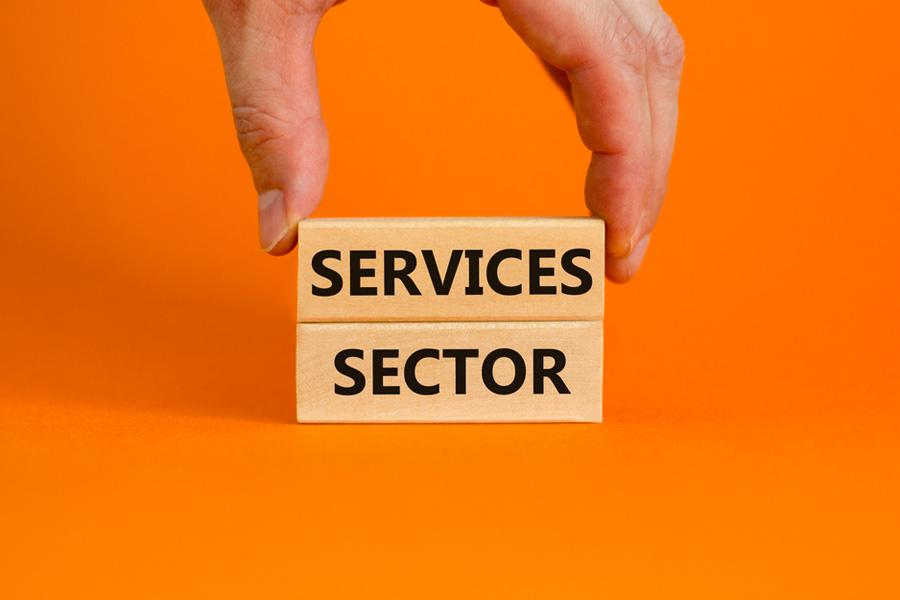 |
| Transport minister Brishin Patel inaugurates the eco rickshaw at Soochana Bhavan in Patna on Thursday. Picture by Nagendra Kumar Singh |
The indigenous tuk tuk is here.
With tuk tuk, a battery-operated auto-rickshaw quite popular in Southeast Asia, the city is trying to find itself on eco-friendly map of urban transport.
Another reason transport minister Brishin Patel — who took a 3km ride on the battery-operated vehicle from his home to office on Thursday — put was to replace cycle-rickshaws in the city.
“I had visited my colleague Shahid Ali Khan, the minister of minority welfare department, sometime back and he showed me this vehicle which has been developed by someone known to him. This idea is interesting and the department is serious towards further developing it. The concept of cycle-rickshaws is very old but the idea of a man pulling another or more is quite inhuman. This vehicle doesn’t need to be pulled and runs on battery,” Patel told The Telegraph after the ride.
Repeated attempts to contact Khan failed.
In countries like Thailand and even Bangladesh, tuk tuks have become a common mode of transport as these vehicles can run around 50km with a two-hour charge of the 72V lithium-ion battery. In fact, tuk tuks can gain a maximum speed of 50km per hour. Although details of the power supply could not be elaborated by Patel, but the model has close similarity to the ones dot the roads of Bangkok. The seating capacity in these vehicles is six with a metal canopy over the passengers.
“Directions have been given to the department to find more information about this technology. The officials have also been told to contact the person who has developed the vehicle so that his expertise can also be taken into account. The eco-rickshaw emits no pollution also. Once we get the details, the department will move further and chalk out a plan, which involves the transfer of these vehicles to rickshaw-pullers. The cost factor also needs to be taken into account while developing the system to phase out the cycle-rickshaws. The move will take time but then the department will start work towards the same very soon,” Patel added.
Shyam Kumar (50), a rickshaw-puller by profession, said the idea was good but required proper study. “I am pulling rickshaws for the past 20 years. Now I am used to it though the job is tough and I make an average of Rs 200-250 per day. The eco-rickshaw is good but we need to be provided training for that. These rickshaws must be costly and hence we should be provided subsidy also. A cycle-rickshaw comes between Rs 10,000 and Rs 12,000,” Shyam said.
A tuk tuk in Thailand costs anywhere between Rs 4 lakh and Rs 8 lakh depending on the battery backup and seating capacity. Patel could not come up with details like the cost factor but promised to look into these before launching commercial services.


